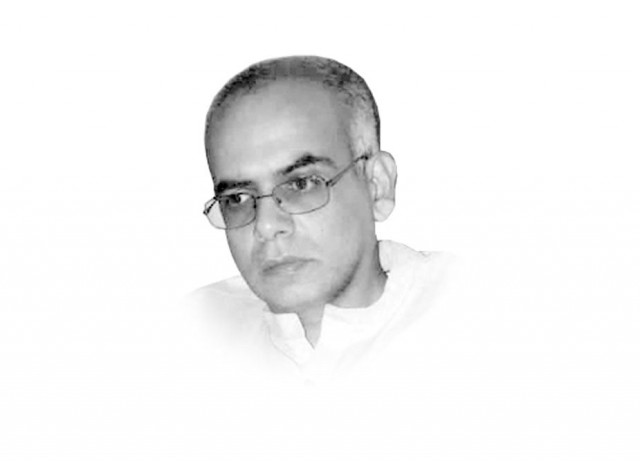Rethinking the role of parliamentarians
PTI government has made tall claims about setting the country on the path of progress and prosperity

The writer is a development anthropologist. He can be reached at ali@policy.hu
A major institutional reform that Pakistan needs to contend with is rethinking the role of parliamentarians. There is currently a major disconnect in Pakistan between what parliamentarians are constitutionally mandated to do, and what they really do.
We are a developing country with limited resources and our inefficient public institutions are still struggling to provide basic services and employment opportunities, and to meet vital infrastructure requirements. Given this situation, it is understandable that our public expects of its elected representatives to act as a conduit for creating employment opportunities for their voters, and to ensure delivery of electricity, sewerage, and schools and hospitals.
Another major hindrance from the perspective of making legislative processes more robust is the fact that political party leaders themselves are not very democratic and they often want to maintain direct control over setting legislative and policy agendas. Parliamentarians thus become mere rubber stamps for their leader’s decisions.
According to a research conducted by PILDAT, parliamentarians spend about 75 per cent of their time servicing personal issues of constituents and 15 per cent of their time working on local development. This leaves only 10 per cent of their time for discharging parliamentary duties. This basic disconnect helps explain the great underperformance in our legislature, which is an essential democratic institution without which real democracy cannot be achieved.
Parliamentarians are supposed to make laws to reform service delivery and to ensure that it is being provided rather than trying to provide services directly. This is where the role of discretionary funds comes in. Parliamentarians have been trying to woo their constituents by providing them development projects and essential services through their own discretionary funds. Of course, these discretionary funds have been used for the personal gain and to award favours to corrupt supporters as well.
Therefore, the PTI’s recent decision to abolish discretionary funds is a laudable measure, whether it will stick to this decision remains another question.
Recall how the PML-N had also initially refused to grant funds to parliamentarians after it had assumed power in 2013, but later was compelled to restore these funds despite pressure from the Supreme Court to ban these discretionary allocations. The PML-N found a circuitous way of releasing funds to its parliamentarians under the guise of trying to meet the United Nations’ 17 Sustainable Development Goals (SDGs). Even the PTI government in K-P had continued doling out funds in the form of special packages and district development initiatives under the previous setup.
If the PTI government is now more serious about eliminating what it calls “discretionary funds”, it should prepare for very strong pushback from political personalities who won their seats on the expectation that they would bring government spending to their constituencies. To overcome the demands of its electables, and its coalition partners, and simultaneously implement other needed reforms to empower local governments to effectively channel service delivery to the local level. It will simultaneously need to implement other parliamentary reforms, including increasing the number of working hours for parliamentarians; strengthening parliamentary committees so they can provide more robust oversight of legislation; and making public more information, including MPs’ voting records.
If implemented these measures should help compel parliamentarians to let go of patronage politics and instead engage in effective legislation, which would indeed be a big win for improved governance within our country.
Published in The Express Tribune, September 14th, 2018.
Like Opinion & Editorial on Facebook, follow @ETOpEd on Twitter to receive all updates on all our daily pieces.















COMMENTS
Comments are moderated and generally will be posted if they are on-topic and not abusive.
For more information, please see our Comments FAQ